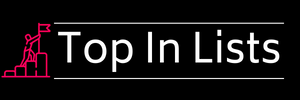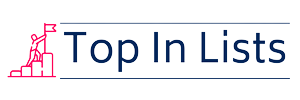Are you looking to increase productivity in the workplace? Everyone wants to make the most of their time at work, and there are plenty of methods you can use to do just that. In this blog, we’ll be exploring different ways to help you become more productive and successful in the workplace.

From optimizing your workspace to taking regular breaks, you’re sure to find some strategies to help you get the job done more efficiently.
Table of Contents
1) Set clear goals
Setting clear goals is an essential part of achieving success in any workplace. It helps to focus your attention on what you need to accomplish and gives you a sense of direction. When setting goals, make sure they are specific, measurable, attainable, relevant, and time-bound.
Make sure to set achievable goals that are realistic and challenging, as this will help motivate you to work hard and reach them. Outline a plan for how you will achieve each goal, and then set deadlines for yourself. Establishing clear goals is a great way to stay motivated and productive in the workplace.
2) Keep a positive attitude
A positive attitude can go a long way in helping increase productivity in the workplace. Having a positive attitude can lead to improved morale, focus, and even creativity. You don’t have to be a cheerleader all the time, but being positive can help set a good example for others. Show appreciation for your coworkers, have an open mind to new ideas and offer encouragement when needed. This will not only help you stay motivated but it will create an environment where everyone feels valued and respected.
Additionally, take a few moments each day to recognize your accomplishments and remind yourself of your goals. Celebrate the small wins and find joy in the everyday tasks. By remaining positive and keeping an upbeat attitude, you can help to boost productivity and make the workplace more enjoyable.
3) Delegate and build a team
A great way to increase productivity in the workplace is to delegate tasks and build a team. This will help to divide and conquer larger tasks while allowing you to focus on what matters most. By delegating certain tasks to qualified people, you can save time and energy. This will also help to create an environment of collaboration, which can lead to better ideas and solutions.
Furthermore, it is important to have a clear chain of command to ensure that everyone is on the same page and working towards the same goals. Building a team of people with complementary skill sets can make sure that all aspects of the project are taken care of, making it easier to achieve success.
4) Take breaks
When it comes to increasing productivity in the workplace, it is important to remember to take breaks. Breaks give your mind and body a chance to relax and recharge so that you can come back feeling refreshed and ready to take on any task. Taking regular breaks helps keep you focused and motivated to complete your tasks.
During your break, try to step away from the computer and do something completely unrelated to work, such as taking a walk, reading a book, or listening to music. Not only will this help reduce stress and give your mind a chance to wander and generate new ideas, but it can also provide an opportunity for creative problem-solving. Taking breaks can also help improve your overall well-being and mental health, leading to better productivity in the long run.
5) Simplify and automate
Simplifying and automating processes in the workplace is key to increased productivity. It is important to identify areas that are bogging down productivity and then explore how they can be made simpler and more efficient. Automating as many of these processes as possible can save you a significant amount of time and energy.
For example, setting up a customer service ticketing system can allow inquiries to be automatically routed to the right person, saving you time. You can also simplify processes by consolidating tasks or combining them into one. By streamlining processes, you can free up time and resources to focus on more important projects. Investing in automation can help reduce costs, improve accuracy, and increase efficiency in the workplace.
6) Focus on one task at a time
Staying productive requires an ability to focus and avoid multitasking. When you try to take on too many things at once, it can be easy to become overwhelmed and lose track of your goals. That’s why it’s important to focus on one task at a time. Working in short sprints is a great way to stay productive and focused. Set a timer for 30 minutes and dedicate this time exclusively to the task at hand. Once the time is up, take a break before starting the next task.
This will help you stay on track and keep distractions to a minimum. Additionally, you can use productivity apps to block access to certain websites while working, allowing you to stay focused on what matters most. Remember that productivity is all about being mindful of your time and energy. Focus on one task at a time and don’t be afraid to take regular breaks to keep your mind sharp.
7) Set deadlines
If you want to increase your productivity in the workplace, setting deadlines can be an effective tool. Establishing deadlines for yourself or a project can help you focus and prioritize your tasks. It also helps you track your progress and hold yourself accountable for meeting those deadlines. Having a goal in mind will motivate you to finish the task faster and with better quality.
Make sure that the deadline is realistic, so you don’t end up feeling overwhelmed or discouraged. You can break down big projects into smaller tasks and set deadlines for each one of them, so you have a better overview and can easily manage the workload. Setting deadlines is essential to staying productive and meeting expectations.
8) Track your progress
One of the best ways to increase productivity in the workplace is to track your progress. Taking the time to evaluate your work helps you identify areas where improvements can be made and motivates you to continue moving forward. To track your progress, you can use any number of tools such as a to-do list, calendar, or project management software.
Set up checkpoints for yourself throughout the day or week so that you can see where you are about your goals. By tracking your progress, you can stay on top of tasks, measure performance, and make sure that you’re staying on task and not wasting time.
9) Take care of yourself
It’s easy to get caught up in work and forget to take care of yourself. Make sure you take breaks during the day to get up, move around, and clear your head. Eating a balanced diet and getting enough sleep is also important for your overall productivity.
When you’re feeling overwhelmed, make sure you take time out for yourself to do something that relaxes you, whether it be going for a walk, reading a book, or listening to music. It’s essential to invest in yourself if you want to be productive in the workplace. Taking care of your physical and mental health can help boost your focus and productivity levels.
10) Stay organized
The organization is key when it comes to increasing productivity in the workplace. Create a plan or checklist of tasks that need to be done and prioritize them according to their importance. It’s also helpful to break down larger tasks into smaller, more manageable chunks.
Keep track of all your projects in an online calendar or to-do list app so you can quickly access them and check off completed items. Make sure to allocate time for administrative tasks like filing paperwork, sending emails, and returning calls so you don’t fall behind on them.
Finally, declutter your workspace and keep it clean so it’s easier to focus and concentrate on the tasks at hand. With these tips, you’ll be well on your way to increased productivity in the workplace.
11) Don’t procrastinate
Procrastination can be a productivity killer. It is important to take action and stay focused on the task at hand. Don’t fall into the trap of thinking that something will take less time or be easier than it is. Take a few minutes to plan out the task and make a schedule to complete it.
Break it down into smaller tasks, set deadlines, and measure progress along the way. This will help you stay on track and avoid distractions. Lastly, avoid multitasking if possible – focus on one task at a time for maximum efficiency.
12) Prioritize
Staying organized and focusing on one task at a time is important, but it’s equally important to make sure you are prioritizing the most important tasks. Decide which tasks are most important and focus on those first. Break up large tasks into smaller, more manageable chunks and try to set aside specific days or times for tackling each chunk.
This will help ensure you’re working on the right tasks at the right time. Take the time to review your priorities throughout the day and make sure that you’re not wasting any time on less important tasks. Prioritizing can also help prevent burnout as it allows you to tackle the biggest challenges first, giving you a sense of accomplishment.
FAQ for increase productivity in the workplace
What are effective strategies to increase productivity in the workplace?
Effective strategies to boost workplace productivity include setting clear and achievable goals, maintaining a positive attitude, delegating tasks efficiently, taking regular breaks, simplifying and automating tasks, focusing on one task at a time, setting realistic deadlines, tracking your progress, taking care of your physical and mental health, staying organized, avoiding procrastination, and prioritizing your tasks based on their importance.
How can setting clear goals increase productivity in the workplace?
Setting clear and specific goals provides direction and focus, helping employees understand what is expected of them. This clarity can boost motivation and efficiency, as individuals can better allocate their time and resources towards achieving these objectives, ultimately enhancing overall workplace productivity.
In what ways does taking care of personal health contribute to increased productivity in the workplace?
Taking care of one’s personal health, through adequate rest, a balanced diet, and regular physical activity, enhances focus, energy levels, and resilience, all of which are crucial for maintaining high levels of productivity in the workplace.
Can delegating tasks effectively lead to an increase in workplace productivity?
Yes, effectively delegating tasks ensures that work is distributed based on individuals’ strengths and expertise, which can lead to more efficient task completion and overall increased productivity in the workplace.
How does staying organized impact productivity in the workplace?
Staying organized helps in managing time and resources more efficiently, reducing the time spent searching for information or resources, and ensuring that tasks are completed on schedule. This contributes to a smoother workflow and ultimately, increased productivity in the workplace.


